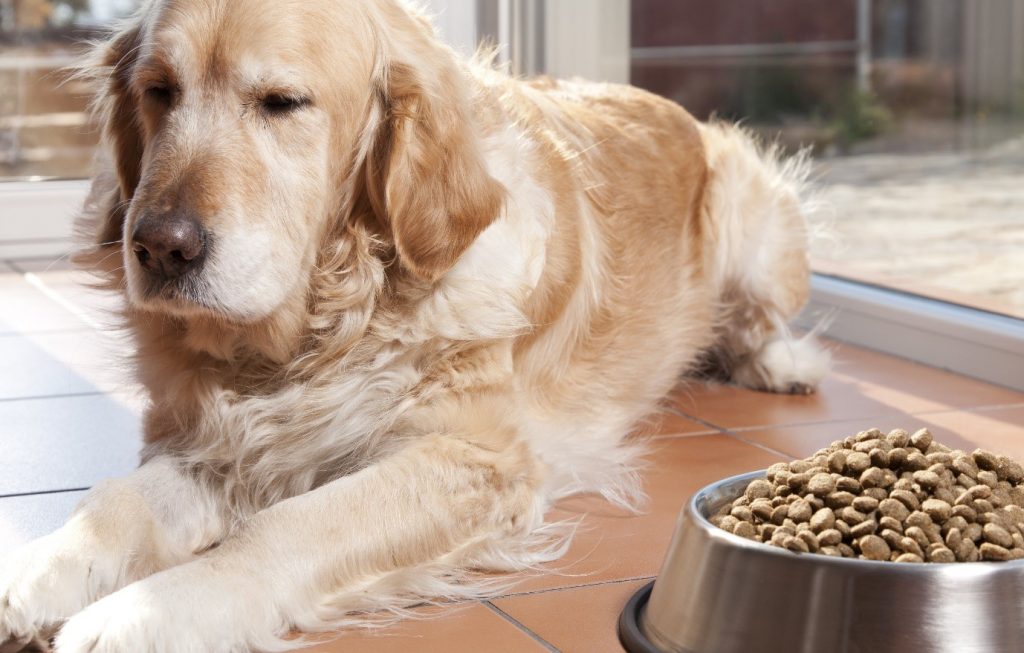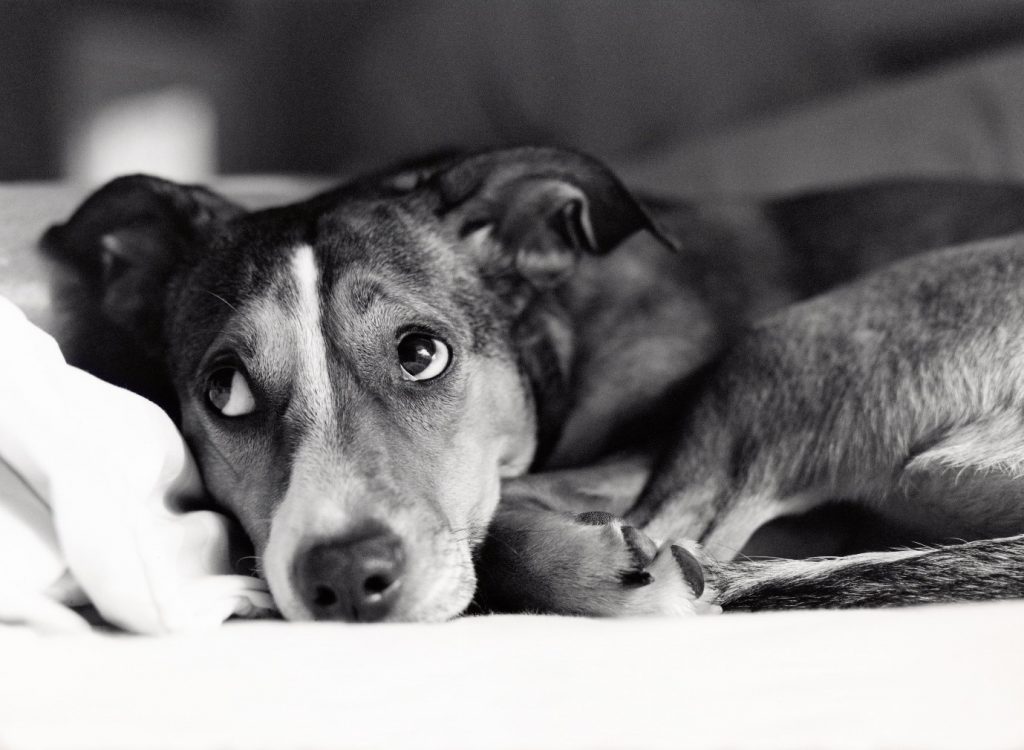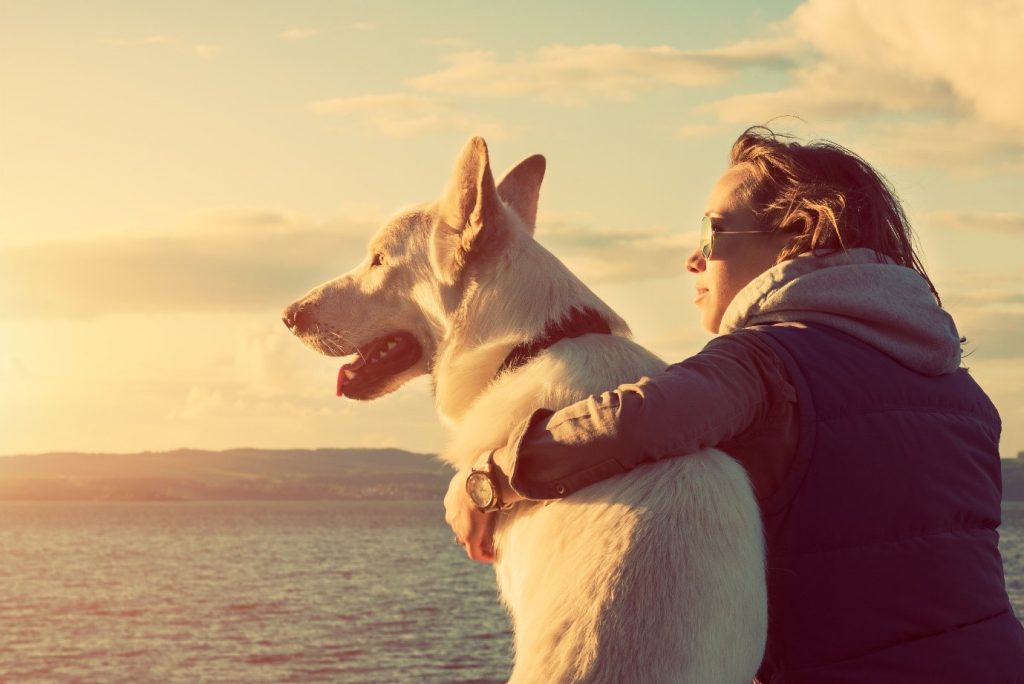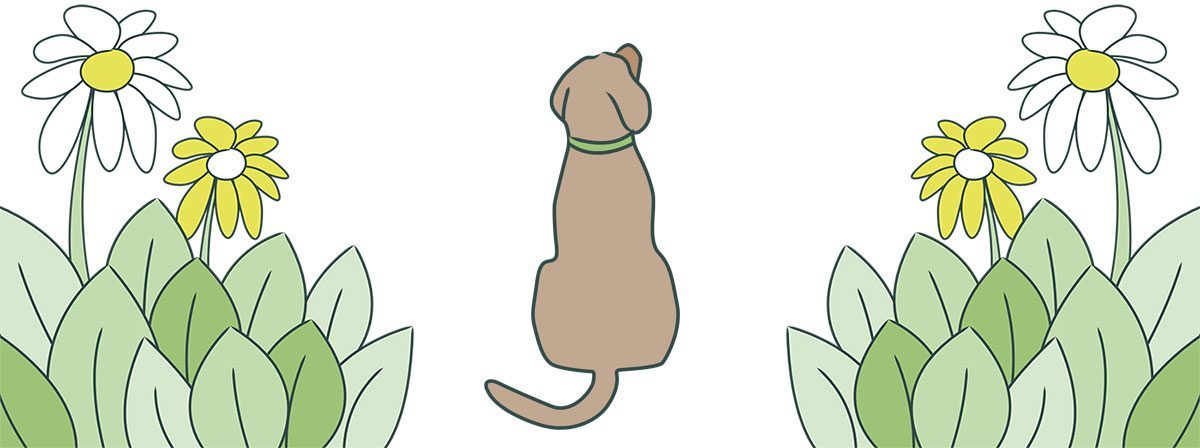Signs of a depressed dog
Mental Health Awareness Week was 13th-19th May and during that week the focus was to encourage people to talk about their mental health issues. However, a depressed dog can’t talk to you so how do you spot the signs.
The loss or departure of a family member, either a human or another pet
can often trigger Canine depression. Also, major changes in the dog’s routine whether it is a new baby, new pet, or even moving into a new house
can trigger depression.
Separation anxiety is very common. If some major changes are triggering anxiety and you’ve put your finger on the source of the problem – try working with your vet, behaviorist or a trainer on techniques that decrease these triggers. You may find that some shorter-term techniques quickly change your dog’s behavior. Also, consider natural remedies including flower essences and a calming essential oil diffuser. Of course, your vet will help you rule out any health issues or physical problems.
If you’re concerned about your furry companion, look out for these five warning signs of depression in dogs:
1. Appetite Changes

Frequently, a depressed dog eats less or may even stop eating. In contrast, some dogs eat a lot more when they get depressed, because food comforts them.
If your dog has experienced extreme weight loss in a short amount of time, there might be a chance there is a chemical imbalance caused by clinical depression.
2. Changes in Sleeping Habits

Like humans, depressed dogs often sleep a lot more than they usually do. In fact, you might come home from work and find that your dog doesn’t want to get out of bed.
Therefore, excessive sleeping could signify depressed behavior.
3. Loss of Interest

A major symptom of depression in dogs is no longer showing interest in going for walks, nor in all the other activities your dog used to enjoy. Once again, these depression symptoms are remarkably similar to humans.
4. Avoidance or Hiding

If your dog suddenly starts hiding from you or wants to be left alone, that’s a strong indication that something is bothering her. It could be a physical injury, or it could be purely emotional.
5. Excessive Licking

Depressed dogs will often lick their paws to soothe themselves. If it seems like your dog is displaying excessive licking or biting behavior, he may be depressed.
What to do?
So what should you do if your usually happy dog has the symptoms of depression? As we mentioned previously, first, take your dog to the vet to make sure no physical ailment caused these symptoms.
If the vet finds that your dog is physically healthy, the best thing you can do is maintain the routine that you and your dog had before the traumatic event, to get her back to a sense of normalcy. Keep feeding times and amounts the same, and take her on plenty of walks so that she can get enough exercise. Definitely engage her with activities she used to enjoy, like going to the dog’s favourite places and make sure you pay her extra attention.

If several months go by and your dog is still depressed or experiencing anxiety, a vet might prescribe medical treatment. However, vets only give antidepressants like Prozac to dogs with severe cases of depression, and usually for short periods of time. Generally, canines get over dog depression on their own, with loving attention from their owners.
If there isn’t an underlying medical condition, then I’d increase my dog’s activity levels as a way to ensure my dog’s mood improves. Of course I would do anything to turn my dog’s sadness around!
With acknowledgement to wideopenpets a publication of Wideopen Media Group Inc.
DISCLAIMER: While every effort has been made to ensure the accuracy of the information contained here it is for educational purposes only. The writer of this article and Dog Hair Day can’t diagnose any physical, mental or behavioural condition in animals nor prescribe treatment. We urge you to consult your vet if you have any concerns about your dog.

